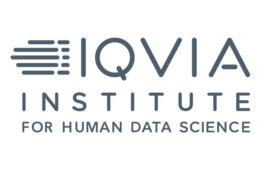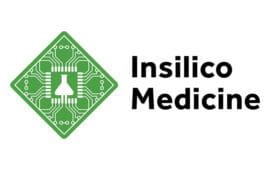Much has been made about AI’s potential to accelerate drug development timelines while chipping away at its often multi-billion-dollar price tag. But Abraham Heifets, CEO of Atomwise, believes that focusing on efficiency is not necessarily the right measure — or the right conversation — to have. Time for a different conversation “The two ways to…
Iambic Therapeutics and NVIDIA partner to slash cancer drug development timelines
Using generative AI in drug discovery, Iambic Therapeutics (formerly Entos) has advanced its IAM1363 drug candidate from program launch to clinical studies in fewer than 24 months — a process that often takes several years. Iambic Therapeutics’ AI drug development milestone relied on an alliance with NVIDIA researchers and engineers and through the use of…
GLP-1s, ADCs, AI and the future of pharma
Pharma’s potential breakthroughs in AI, ADCs, and GLP-1 receptor agonists raise a critical question: can innovation outpace the relentless rise of chronic disease? The IQVIA Institute for Human Data Science sheds light on this theme, among many others, in its 80-page Global Trends in R&D 2024 report. Pillar 1: GLP-1 receptor agonists targeting metabolic disease…
Big Pharma clicks soared, but new cell therapies made you buzz: What drove biopharma interest in 2023?
Despite biopharma’s 2023 layoffs and challenges, innovation won your clicks last year with over 130,000 of them on our Pharma 50 report alone. But while giants dominated, your clicks showed disruptive tech wasn’t far behind. The next-most popular article was a roundup of 100 trailblazing cell and gene therapy companies with more than 80,000 views.…
Skynet with benefits: Can AI and humans become a drug discovery superorganism?
Will the credit for future mega-blockbuster drugs, in some cases, go to a carefully-programmed AI discovery system connected to a “self-driving lab” that verified its potential? Certainly, AI is hyped, but so are potential profits of potentially AI-optimized drugs. The exploding volumes of scientific data highlight a shift often overlooked: what does “inventor” even mean when…
Amgen, Deepcell tap NVIDIA’s AI to drive drug discovery and advance cell morphology research
In 2023, generative AI (GenAI) entered the mainstream, capturing the attention of both the public and a growing number of biotechs. One of the most prominent Big Tech firms driving the trend is NVIDIA, which has forged alliances with biotechs ranging from Genentech, Recursion Pharmaceuticals and Evozyne, among others. The momentum is continuing in early…
How Accenture and AWS are upgrading Merck’s IT and drug discovery R&D engine
Historically, the pharma sector has exhibited a degree of caution in adopting emerging technologies such as cloud computing and AI, given the sector’s stringent regulatory requirements, data security concerns, and the complexities involved in integrating new systems into legacy processes. The situation is beginning to shift considerably with the COVID-19 pandemic, in particular, acting as…
Insilico Medicine taps AI to nominate small molecule inhibitor ISM9274 as a preclinical cancer therapy
Clinical-stage AI company Insilico Medicine has nominated a novel small molecule inhibitor known as ISM9274 as a preclinical candidate for cancer treatment. The company used its PandaOmics AI platform to analyze genomic data from more than 90 tumor types and identified CDK12 as a promising target for multiple cancers including triple-negative breast cancer, lung cancer,…
Interactive snapshot: 30 promising biotech startups
2023 is shaping up to be a pivotal year for promising biotech startups. While the sector faced multiple waves of layoffs, a silver lining is evident: the growing maturity of AI and genomics technologies is fueling a new wave of startup advances, especially in drug development. Amidst the backdrop of that turbulence, a select group…
Eversana partners with AWS to accelerate generative AI in pharma
Life sciences commercial services company Eversana is one of the latest to throw its hat into the generative AI ring. Tapping a partnership with Amazon Web Services (AWS), Everasana is focusing on developing generative AI technologies in the pharmaceutical industry. Also this month, the startup Synthetica Bio announced it would use generative AI to boost…
What Google DeepMind’s introduction of AlphaDev sorting algorithm could mean for drug discovery
Researchers at Google’s DeepMind AI team have used AI to create advanced sorting algorithms, which although not specifically designed for drug discovery, could potentially benefit the field. Published in Nature, DeepMind’s latest work demonstrates the use of deep reinforcement learning to create more efficient routines for sorting and hashing. These algorithms find use in various…
Insilico Medicine wins IND approval for AI-designed USP1 inhibitor for cancer trials in U.S. and China
Insilico Medicine has made a significant breakthrough with its AI-designed USP1 inhibitor, ISM3091. The US Food and Drug Administration (FDA) has accepted Insilico’s Investigational New Drug (IND) application for this promising drug, marking a significant milestone for AI-assisted drug discovery. “The FDA’s acceptance of our IND for ISM3091 signifies that the FDA recognizes its potential…











